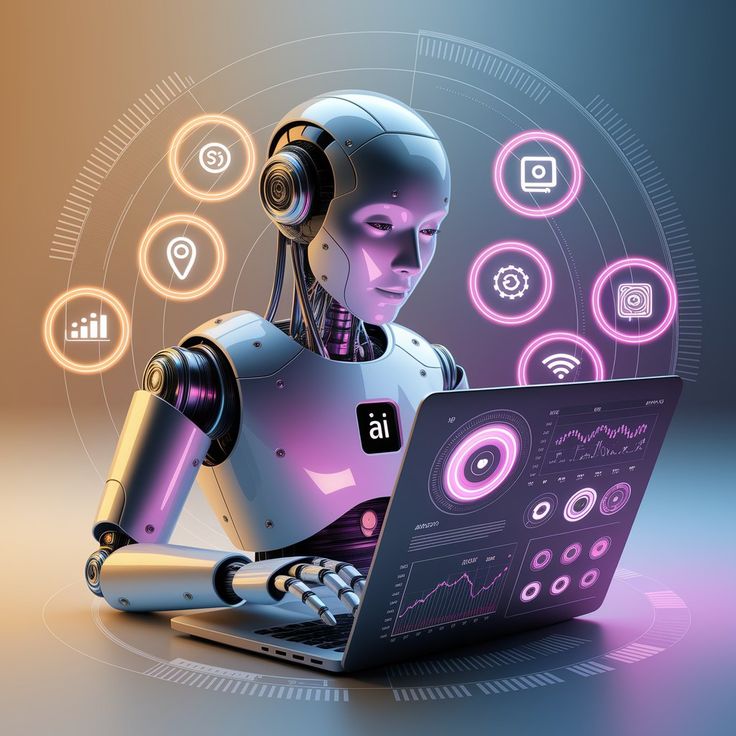
Digital marketing has undergone tremendous changes over the past decade. Search engine optimization and email campaigns to social media strategies, brands always adapted to shifting consumer behavior. In the 21st century, the biggest revolution in this field is Artificial Intelligence (AI). What was once considered futuristic is now a powerful tool that is already shaping how businesses connect with customers, analyze data, and optimize campaigns. AI in digital marketing refers to the use of smart algorithms, automation, and machine learning. It efficiently makes marketing more efficient and impactful. Instead of relying on traditional methods, marketers need to harness AI for data-driven insights, personalization, predictive analysis, and much more.
The importance of AI in digital marketing lies in its ability to transform raw data into meaningful strategies. With millions of people engaging online businesses are flooded with data. Analyzing massive datasets could take months which AI does in real time. It provides marketers with immediate insights into customer behavior. It helps brands personalize their communication, optimize ad spend, and forecast market trends. AI makes it possible to deliver robust experiences to every individual customer, leading to deeper engagement and higher conversion rates.
Today’s consumers expect brands to understand their needs and preferences. Many companies use AI to recommend products, based on browsing and purchase history. Smaller businesses can leverage AI tools to analyze customer journeys and design campaigns that are relevant. If someone often buys fitness gear, AI systems can automatically target them with ads for supplements or workout clothes. This customization improves sales and builds long-term customer loyalty. Another major use of AI is in customer service through chatbots and virtual assistants. AI-driven tools are available 24/7, answering frequently asked questions, guiding users through websites, and even recommending products. They reduce the need for large customer service teams while ensuring that customers get instant responses. This improves the user experience and saves businesses time and money. Data collected through these interactions can help refine products and services even further.
Content creation has also been impacted by AI. AI tools assist marketers by suggesting keywords, generating blog ideas, optimizing readability and writing short ad copies or captions. Platforms such as Jasper AI and Copy.ai can draft content quickly. It gives marketers more time to focus on strategy and creativity at the end. AI has revolutionized advertising with programmatic ad buying. Instead of manually selecting placements and bidding, AI automates process, ensuring that ads are shown to the right audience at the right time. This results in better ROI, more relevant ad experiences for users and less wasted budget for businesses.
Predictive analytics is another powerful application. By analyzing past customer behavior, AI can forecast future trends. An E-commerce company, can predict which products are likely to sell during a festive season, adjust its inventory and campaigns accordingly. Similarly, AI is shaping how marketers approach voice search for selling products. With the rise of Alexa, Siri, and Google Assistant, optimizing content for voice queries has become crucial. Voice queries are often longer and conversational, that helps businesses understand and adapt to this shift. Email marketing is another area where AI proves invaluable. AI makes it possible to personalize subject lines, determine the best time to send emails, and segment audiences more effectively. By analyzing engagement patterns, businesses can achieve higher open rates and click-throughs, leading to better results from their campaigns.
The benefits of AI in digital marketing are tremendous. It increases efficiency by automating repetitive tasks like scheduling, reporting, and data analysis. It improves accuracy by minimizing human errors and relying on data-driven decisions. It enables scalability, to manage large campaigns across multiple channels with ease. It also boosts customer retention by delivering personalized offers and helps businesses gain a competitive advantage in the crowded digital space. AI adoption also comes with challenges. High initial investment can be a barrier for small businesses, and concerns around data privacy are growing day by day. Over-reliance on technology may reduce the human touch in customer interactions. Lack of skills and training can prevent marketing teams from making the most of AI-powered tools.
The future of AI in digital marketing looks promising and exciting. Hyper-personalization will likely become the norm, where campaigns will be tailored to customer segments and individuals on a deeper level. AI-generated videos, visual search where users upload images, typing queries and emotion AI that interprets customer emotions will become more common. Voice commerce, where customers shop through voice commands, will see a significant rise. Brands that adopt these innovations early will be able to stand out and secure customer loyalty. Secondly, those that lag behind may struggle to remain competitive.
For businesses looking to get started with AI in digital marketing, the key is to start small. Implementing chatbots or AI-powered analytics tools is a good first step. Investing in training for marketing teams is equally important, how to use AI effectively can unlock its true potential. Leveraging popular AI tools like HubSpot, SEMrush, Jasper, or Google AI can simplify complex tasks. It is crucial to strike a balance between human creativity and AI efficiency. While AI can analyze data and suggest strategies, human marketers bring storytelling, emotion, and brand personality into campaigns.
In conclusion, AI is no longer just a buzzword—it is a transformative force redefining digital marketing. From personalization and predictive analytics to chatbots and automated advertising, it enables businesses to reach the right audience at the right time. Although challenges like cost and data security remain, the advantages of adopting AI far outweigh the risks. Businesses that embrace AI will stay ahead in the digital race and also create more meaningful connections with their customers. AI in digital marketing is the future and changing the way brands interact with the world.
